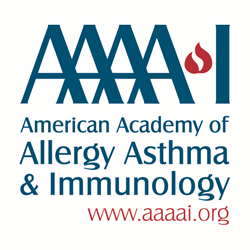A study in The Journal of Allergy and Clinical Immunology: In Practice found that children whose parents scored lower on health literacy assessments were more likely to suffer from allergic reactions in the past year and their parents were less likely to carry an epinephrine autoinjector and to demonstrate how to use it properly.
 Food allergy affects up to 10% of young children in Western countries and can cause reactions ranging from hives to more severe reactions including anaphylaxis. Children are largely dependent on their parents and caregivers to avoid reactions and provide emergency treatment, but a recent study in The Journal of Allergy and Clinical Immunology: In Practice uncovered that guardians’ health literacy can play a role in how they respond to their children having an allergic reaction and how often their children have them.
Food allergy affects up to 10% of young children in Western countries and can cause reactions ranging from hives to more severe reactions including anaphylaxis. Children are largely dependent on their parents and caregivers to avoid reactions and provide emergency treatment, but a recent study in The Journal of Allergy and Clinical Immunology: In Practice uncovered that guardians’ health literacy can play a role in how they respond to their children having an allergic reaction and how often their children have them.
In the study, “Low Caregiver Health Literacy Among Pediatric Food Allergic Patients is Associated with Poorer Food Allergy Management Knowledge,” researchers discovered that parents with limited health literacy were less likely to properly demonstrate how to use an epinephrine autoinjector, less likely to carry one, and their children tended to have more allergic reactions to foods in the past year than children with parents who had a higher level of health literacy. These factors were compounded with the propensity to choose less appropriate healthcare settings for reaction management.
“While all patients and families would benefit from improved education on how to use epinephrine autoinjectors and how to manage food allergies, these results demonstrate that caregivers with low health literacy, and subsequently patients under their care, have some potential to be disproportionately impacted by key management issues,” lead author Maureen Egan, MD, states. “These findings help demonstrate key deficiencies in food allergy knowledge and management that can hopefully be addressed with the development of educational tools in the future.”
The parent’s health literacy was assessed using the Newest Vital Sign (NVS), a six question survey that established a parent’s ability to read an ice cream label that indexes the likelihood that a person has a high or low level of health literacy.
The parents were then assessed to see if they could appropriately demonstrate how to use an epinephrine autoinjector with a six-step checklist and whether or not they were carrying an autoinjector at the time. They were also asked to fill out a demographic form and a food allergy history survey that outlined the number of calls made to pediatricians and allergists and emergency department visits within the last year.
Researchers then had the parents answer two multiple choice vignettes with hypothetical case presentations. One outlined a case of very mild hives and the other a case of clear anaphylaxis. The parents’ answers were analyzed to see if they had any knowledge gaps on the treatment of the two allergic reactions.
“There’s a paucity of work evaluating how to best provide food allergy education to parents in any population, let alone people with lower levels of health education to begin with,” said Egan. “It highlights the need for the development of informed education materials addressing gaps in
food allergy knowledge.”
The authors noted that this exploratory study has several limitations. It was a convenience sample of participants recruited from a referral population at Mount Sinai Hospital, a single academic medical center, so result may not be generalizable. Also, correct autoinjector use was defined as completion of all six steps but the medication could be successfully delivered with fewer steps. Parents’ answers to the vignettes and other questionnaires are subject to recall bias and may not represent all real-life management behaviors.
To learn more about food allergies or anaphylaxis, visit aaaai.org. You can also use the AAAAI’s “Find an Allergist/Immunologist” feature to locate a board certified allergy professional in your area.
The American Academy of Allergy, Asthma & Immunology (AAAAI) represents allergists, asthma specialists, clinical immunologists, allied health professionals and others with a special interest in the research and treatment of allergic and immunologic diseases. Established in 1943, the AAAAI has nearly 7,000 members in the United States, Canada and 72 other countries. The AAAAI’s Find an Allergist/Immunologist service is a trusted resource to help you find a specialist close to home.






